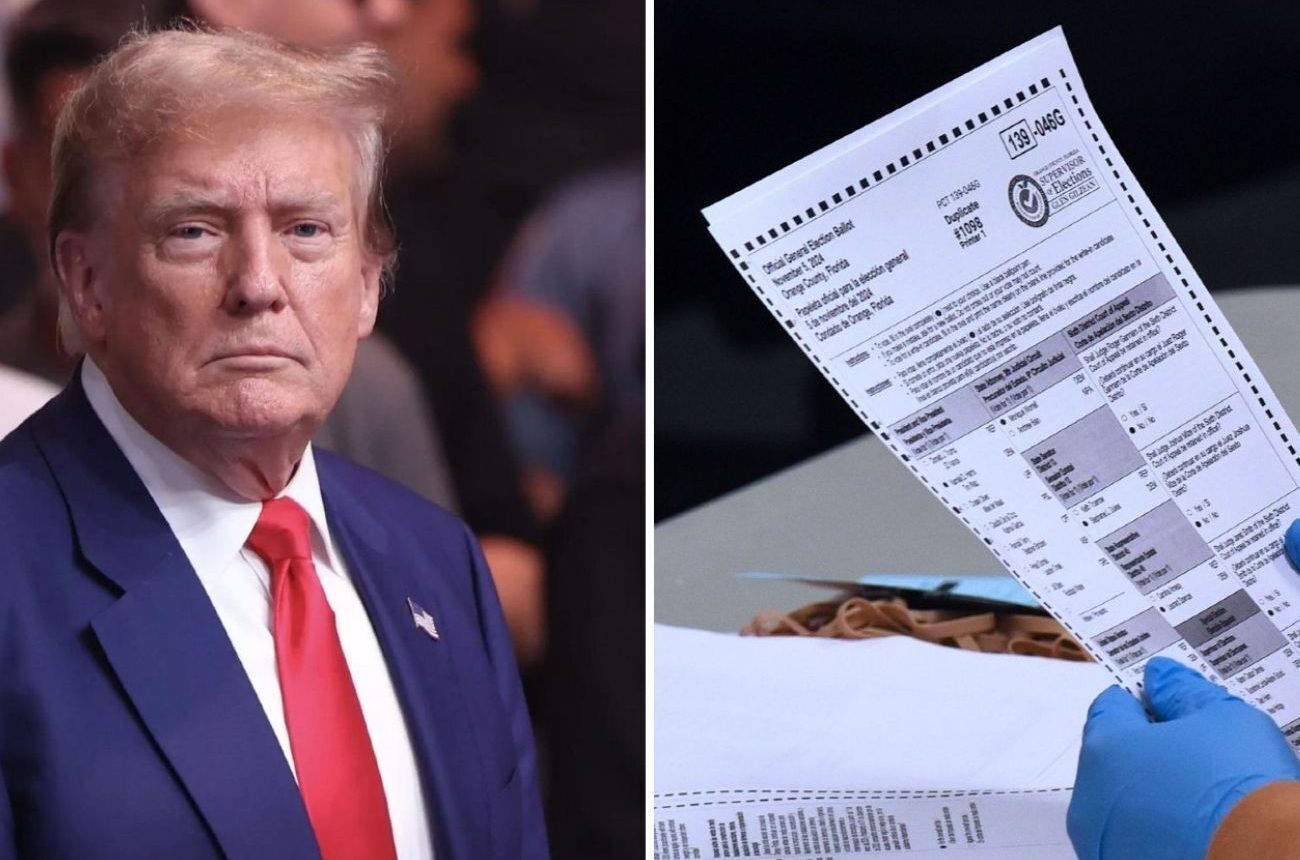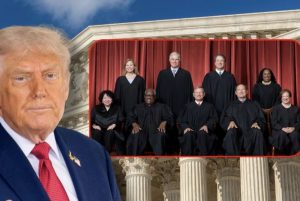Fifth Circuit Rules Against Biden Administration and Voting Rights Groups
Texas scored a major legal victory this week as a federal appeals court upheld the state’s mail-in voter identification requirements, rejecting arguments from the Biden administration and several civil rights organizations that the law was discriminatory and violated federal protections.
The Fifth Circuit Court of Appeals ruled that Texas may continue requiring voters who apply to vote by mail to provide identification numbers that match their official state records — a measure that state officials say is essential for preventing election fraud and maintaining public confidence in the electoral process.
The decision, issued on August 4, 2025, represents a major reversal of a lower court ruling from 2023 that had struck down the law’s ID-match provision.
Court Says Texas Law Is “Obviously Designed To Confirm Voter Identity”
Writing for a unanimous three-judge panel, Judge James Ho emphasized that the ID-matching system under Texas’s Senate Bill 1 (S.B. 1) was a legitimate means of confirming voter identity and deterring fraud.
The court described the law as “obviously designed to confirm that every mail-in voter is indeed who he claims he is,” dismissing claims that it unlawfully restricts access to the ballot box.
Judge Ho was joined in the opinion by Judge Patrick Higginbotham and Judge Don Willett, both of whom agreed that Texas acted within its constitutional authority to secure its elections.
The ruling effectively lifts a previous injunction imposed by a lower federal court in November 2023, which had been temporarily stayed pending appeal.
Reversal of Lower Court Decision
The lower court’s earlier ruling had sided with the plaintiffs — including the Biden Justice Department, the ACLU, and Texas Civil Rights Project — who argued that the ID-match requirement violated the Civil Rights Act’s materiality provision, which prevents states from rejecting ballots based on errors that are not “material” to determining voter eligibility.
However, the Fifth Circuit disagreed. In its strongly worded opinion, the appellate court said it had “no difficulty” finding that ensuring a match between a voter’s ID number and their official record is entirely material to confirming eligibility.
“The match requirement directly relates to verifying a voter’s identity — the most basic element of determining whether that individual is entitled to vote,” the court wrote.
Texas AG Ken Paxton Declares Victory
Following the decision, Texas Attorney General Ken Paxton celebrated the ruling as a landmark win for election integrity and state sovereignty.
“This is a massive victory for the rule of law and for the people of Texas,” Paxton said in a statement. “Our elections must be fair and secure. Requiring ID verification for mail-in ballots is common sense — and it’s now confirmed to be constitutional.”
Paxton added that the decision “puts an end to the Biden administration’s baseless legal crusade against states that want to protect the integrity of their elections.”
Background: S.B. 1 and the 2021 Election Integrity Push
The ID-match requirement was part of Senate Bill 1, the sweeping 2021 election legislation enacted by Texas Republicans in the aftermath of the 2020 election.
S.B. 1 tightened mail-in voting procedures, added new criminal penalties for election irregularities, and expanded access to poll watchers. It also required voters requesting mail ballots to provide either their driver’s license number or the last four digits of their Social Security number — and for those numbers to match what’s on file with state records.
Supporters said the measure was necessary to prevent fraud and restore voter confidence after a contentious national election marked by mail-in ballot controversies.
Opponents, including the Democratic National Committee and several civil rights groups, claimed the law would disproportionately impact elderly, disabled, and minority voters.
Biden DOJ and Activist Groups Challenge Law
The Department of Justice, under the Biden administration, sued Texas in late 2021, arguing that the mail-in ID requirement would lead to large numbers of ballot rejections due to minor clerical mismatches and technical errors.
The plaintiffs — which included the American Civil Liberties Union Foundation, ACLU of Texas, Disability Rights Texas, the Texas Civil Rights Project, and the Democratic National Committee — argued that Texas’s database was unreliable and that tens of thousands of eligible voters risked disenfranchisement.
Court filings revealed that as of January 2023, more than 60,000 voter records had mismatched ID numbers, leading activists to claim that the law created “bureaucratic obstacles” to lawful voting.
Despite those concerns, the Fifth Circuit panel appeared unconvinced during oral arguments held earlier this year. Observers noted that the judges did not ask a single question of the Texas attorney general’s lawyer, a sign that they found the plaintiffs’ arguments unpersuasive.
Judges Reject “Materiality” Argument
In rejecting the lower court’s reasoning, the Fifth Circuit made clear that voter ID verification is directly related to determining eligibility — not a procedural technicality.
“The requirement that a voter’s identification number match their state record is not trivial or immaterial,” the court wrote. “It is fundamental to verifying that the person casting a ballot is the same person registered to vote.”
By reaffirming Texas’s authority to verify voter identity, the ruling could have broad implications for other states defending similar election integrity laws challenged under the Civil Rights Act.
Case Information and Legal Precedent
The case, United States v. Paxton, No. 23-50885 (5th Cir.), was decided on August 4, 2025.
The decision not only reinstates Texas’s ID-matching system but also bolsters similar provisions under consideration in states like Georgia, Florida, and Arizona, which have faced comparable lawsuits from the DOJ and left-wing advocacy groups.
Legal analysts say the ruling could serve as a key precedent for how courts interpret the “materiality” clause of the Civil Rights Act in election-related contexts — potentially limiting the federal government’s ability to challenge state-level voter ID laws in the future.
Democratic Disarray Amid Court Losses and Poor Polling
The Texas ruling comes as Democrats across the country face mounting frustration from their base and record-low approval ratings in national polling.
A new Quinnipiac University survey released this week revealed that 53% of Democratic respondents disapprove of how congressional Democrats are performing, while only 41% express approval.
Among all registered voters, just 21% approve of how Democrats in Congress are handling their jobs — matching an all-time low since Quinnipiac began asking the question in 2009.
By contrast, Republican voters expressed strong internal support for their party’s leadership, with 79% approving of congressional Republicans’ performance, compared to 13% disapproving.
Texas GOP Momentum Grows
The ruling also bolsters momentum for Republicans in Texas, where lawmakers have doubled down on calls for tighter election oversight and accountability.
On the same day the court’s decision was released, Attorney General Ken Paxton endorsed a Texas House resolution authorizing the arrest of Democrat lawmakers who skip legislative sessions to block quorum — a move reminiscent of the 2021 walkout by Texas Democrats protesting S.B. 1.
“This state will not be held hostage by lawmakers who flee their duties,” Paxton said. “We will protect election integrity and uphold the will of the voters.”
Political Implications: Strengthening State Election Powers
Analysts say the Fifth Circuit’s decision could mark a turning point in the broader national debate over election laws.
By affirming Texas’s authority to implement ID verification for mail-in ballots, the ruling effectively reasserts state control over election administration — pushing back against years of federal encroachment.
“This is a significant blow to the Biden Justice Department’s strategy of using the Civil Rights Act to dismantle state election integrity laws,” said constitutional attorney Hans von Spakovsky, a former member of the Federal Election Commission.
“States have the constitutional right — and responsibility — to make sure that only eligible citizens are voting. The Fifth Circuit just reinforced that principle in a major way.”

Sarah Mitchell is a bestselling novelist recognized for her insightful and emotionally resonant stories that explore the complexities of human relationships. Originally from Denver, Colorado, Sarah grew up in a family of teachers who nurtured her curiosity and love for storytelling. She studied psychology at Stanford University, where she became fascinated by the intricacies of human behavior—an interest that would later shape her writing career. Sarah’s novels are praised for their nuanced characters, intricate plots, and ability to capture the subtle tensions that define love, friendship, and family ties. Her breakthrough novel, The Spaces Between Us, became an instant bestseller, lauded for its honest portrayal of strained family relationships and the fragile bonds that hold people together. Since then, she has published several works that continue to captivate audiences around the world. Outside of her writing career, Sarah is passionate about mental health advocacy and often partners with organizations to promote awareness and support for those struggling with emotional well-being. Her personal life is quieter—she enjoys hiking in the Colorado mountains, practicing yoga, and spending time with close friends. With each new book, Sarah Mitchell cements her reputation as a writer who illuminates the beauty and struggles of human connection.









